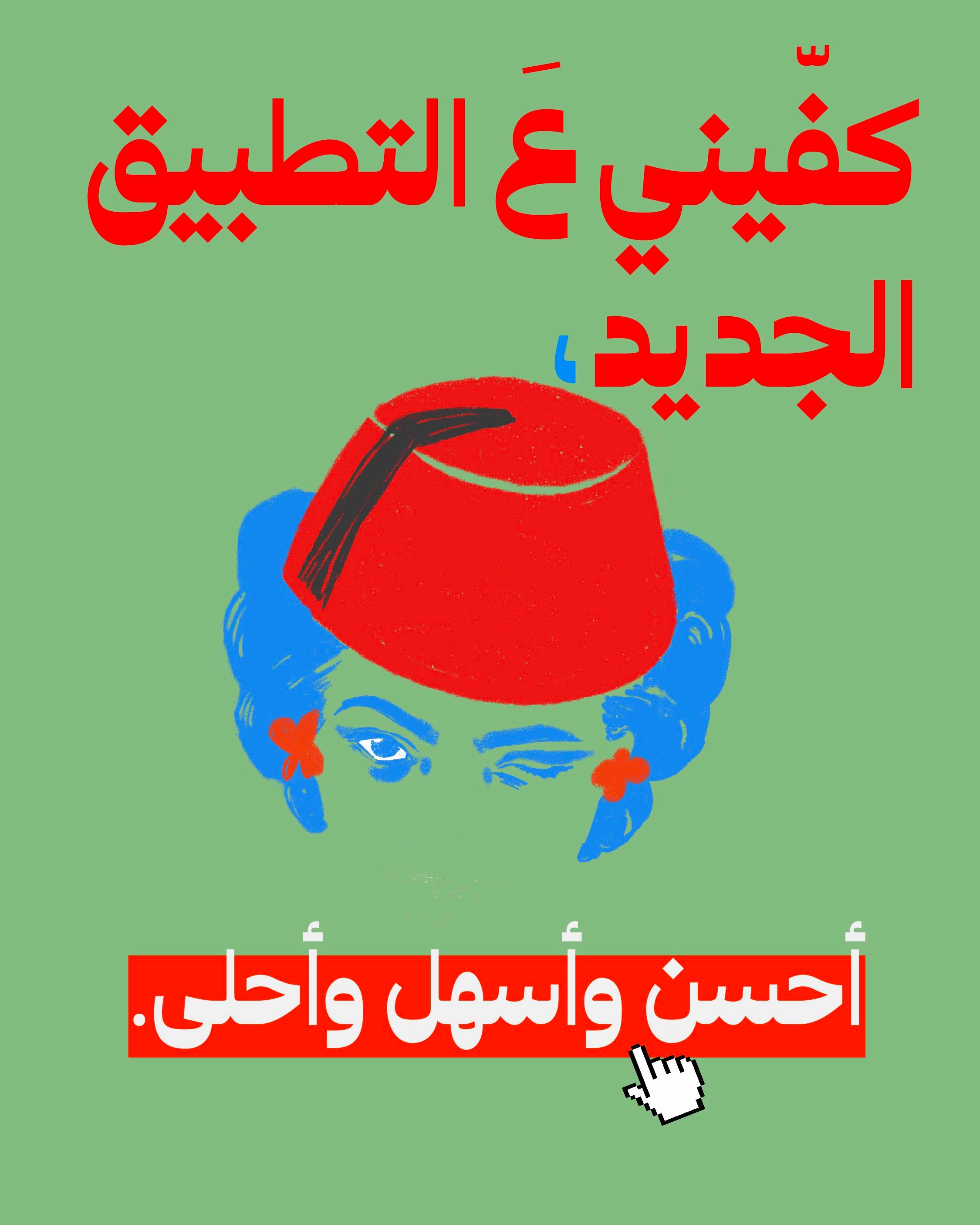From the days of the legendary warrior queen Dihya bint Mattiya bint Tiffan (known as "Al-Kahina") who used to ride her horse to chase the remnants of the invaders to protect her land and draw the borders of her kingdom from Tripoli to the stretch of North Africa, the Libyan Amazons — indigenous Amazigh (or Imazighen) female warriors — had made their mark on African soil. These are the fabled women fighters who cut off their breasts to devote themselves to fighting, and were followed years later by their descendant granddaughters whose bodies dangled under the gallows of Italian invaders.
Those fierce female warriors were the ones who created warmth out of piles of wool and earned their livelihoods from fields of wheat and olive. Precious agate and silver jewelry did not prevent them — nor did the luxurious clothes, the henna designs, and the tattoos that adorned their bodies — from engaging in the industry of life with all that was in it and those in it.
Times have changed... A lot
In Libya, women were never half of society, but rather were the whole of society. They did not leave a scene or field of work that they did not break into and play the most important roles inside and outside homes, in the past and present. As human societies develop and change over time, the size of the female presence in the Libyan labor market has witnessed many changes and has been subject to considerations imposed on women in the workplace, as well as the time and type of work that society allows them to do, under its shadow and its authority.
The social norm in Libya was and still is trying to limit women's workplaces to the home, school, or some medical professions that those wishing to be financially independent are forced to turn to even if they do not have the desire to do so
Legally, there is nothing to prevent Libyan women from taking the place and position they want when they think about getting a job, but the reality is that there are other authorities that trump the rule of law, including the social authority of customs and traditions. I am not exaggerating if I say that this authority may sometimes be more stringent than some of the teachings of religion when it comes to imposing its visions.
In Law No. 12 on Labor Relations issued in 2010, we see an equality that Libyan women do not actually enjoy on the ground, as the second article of this law stipulates that work is a right and a duty for all citizens, male and female. This broad phrase grants an inherent legal right to women, but there is another authority that controls the entire scene and limits the impact of this right, restricting it at times and stripping it of its female holders at other times.
The social norm in Libya was and still is trying to limit women's workplaces to the home, school, or some medical professions that are considered a haven for those wishing to be financially independent, forcing them to turn to these professions even if they do not have the desire to do so, because ensuring the approval of the family and the social environment is the main criteria to these choices, and because Libya, with its vast geographical area, includes nomadic, rural, and urban communities, these criteria differ from one region to another.
In villages, women tended to teach in schools as well as work in the small fields next to their homes, while in cities where the urban features of the population are concentrated, work and education is a common phenomenon. There, women have more options, and can be found in many administrative jobs that rural women cannot even think of knocking on the doors leading to them.
The last decade has not been in favor of women
In the last decade, there have been many changes that accompanied the political earthquake that swept Libyan society. During this time, a regime was brought down, but an alternative one has not been set up in its place to this day to be a suitable environment for the growth of new convictions, or perhaps lead to a return to the narrative of the strong Libyan grandmothers, female farmers and peasants, female weavers, craftswomen, and women fighters in all battles of life.
The difficult economic conditions have contributed to the involvement of many women in the labor market in professions that were previously monopolized by men and are now seeing a female demand to enter them, helped by the tremendous technological development that arrived late to the country in its current form. But it has effectively contributed to providing important job opportunities for women and young ladies who work from inside their homes where its services can reach the consumer everywhere, so that they can provide for their homes with what they produce.
Women's working conditions vary between large cities and small villages. In the latter, the bond of kinship and affinity prevents families from crossing social red lines, so we find them maintaining the notion that their daughters do not leave except to go to school as students and teachers
Women's working conditions vary between large cities and small villages.In the latter, the bond of kinship and affinity prevents families from crossing social red lines, so we find them maintaining the notion that their daughters do not leave except to go to school as students and teachers, although administrative and clerical work was not popular in the past.
In cities, most families are far and alienated from their social surroundings, and somewhat detached from the social restrictions of relatives. Moreover, the fast pace of the economic situation pushes the family, with all its members, to fully engage in the labor market in order to keep pace with life and its many requirements, with the permanent and steady presence of various job opportunities available for women whenever male guardianship allows them and whenever they break their family's social restrictions.
Today, the situation is completely different, even in the villages. It has become normal for a girl to enroll in university and get a job opportunity afterwards, whether in her field of specialty or even out of it. The economic conditions that the country has gone through in recent years have led to the expansion of the base of women's participation in creating a good economic situation or even developing the economic well-being of some families, with some professions still being met with disapproval and non-acceptance by some communities, especially in the countryside and away from the openness of large cities.
Iman, a 33-year-old teaching assistant at the Faculty of Science and a master's student, tells Raseef22, "Yes, I got this work quite easily, but the journey to get here was long and difficult; studying, staying up late, and working hard to be the first in my class. I used to dream of something completely different than teaching at the university. It could have been in the oil field, which I enjoyed studying everything related to within my geology major, and this type of work is very available, but the reason behind not being able to realize this dream is mine alone and is only related to the circumstances of my marriage, and having my two children."
Job opportunities for women are greatly abundant, but getting them requires a young lady or a woman who is not completely subject to the restrictions of society, which are often unfair and exaggerated.
Abeer (pseudonym) studied at the University of Gharyan and worked there after graduating. The 39-year-old tells Raseef22, "I didn't get this job easily, yet it does not meet my aspirations. I was hoping to work in the field of medical laboratories, which I used to originally work in before my marriage, but I left it and stayed in my job in the university because it is more suitable for a wife and mother, despite the fact that the effort I have to put in is more than the return, in addition to the lack of development in this line of work. When it comes to job opportunities, if I wanted to go back to the laboratory field, I can find my job position ready for me by tomorrow. Job opportunities are always available in my city."
Hind, a 23-year-old student at the same university, says, "Job opportunities exist, but what I want in my field of specialization is not available in my city, so I don't know if I will get the job I aspire to. It is difficult for a girl in my village to leave to another place for work."
Iman.. "I used to dream of something other than teaching at university, in the oil field. This type of work is very available, but the reason for not being able to realize this dream is related to the circumstances of my marriage and having my two children"
The young women who have shared their opinions here represent a small sample of Libyan women, and today, with the development and growth of the country's regions, it has become "okay" for them to work in medical jobs and some administrative jobs. And why not work as lawyers, doctors, successful engineers, and employees in government departments? All this is technically available for women but some jobs remain frowned upon by society to this day.
From fierce Amazons to flying warplanes to restrictions
At a time when Libyan women were flying warplanes in the early seventies of the last century and were more responsible for themselves, their clothes, and most of their choices, they may not be able to join the college they aspire to study in because it is located in a distant city and because the security situation is fragile and may lead to bad possibilities at every moment.
The phenomenon that has emerged in recent years include the launch of small business projects from homes and their promotion through social media to cover large geographical areas and achieve great success
As for the phenomenon that has notably emerged in Libyan society in recent years, it includes the launch of small business projects from homes and their promotion through social media to cover large geographical areas and achieve great success for the housewives who run these businesses, some of which may turn into large economic projects even though they're based on small crafts and services like cooking, knitting, embroidery, drawing, photography, and many more.
The idea of "online projects" such as these has circumvented some of the customs of society that have been the real obstacle standing in the face of women being able to flourish in the labor market, and perhaps it may even become one of the gateways to a future that'll open up a new world to women in Libya.
رصيف22 منظمة غير ربحية. الأموال التي نجمعها من ناس رصيف، والتمويل المؤسسي، يذهبان مباشرةً إلى دعم عملنا الصحافي. نحن لا نحصل على تمويل من الشركات الكبرى، أو تمويل سياسي، ولا ننشر محتوى مدفوعاً.
لدعم صحافتنا المعنية بالشأن العام أولاً، ولتبقى صفحاتنا متاحةً لكل القرّاء، انقر هنا.






